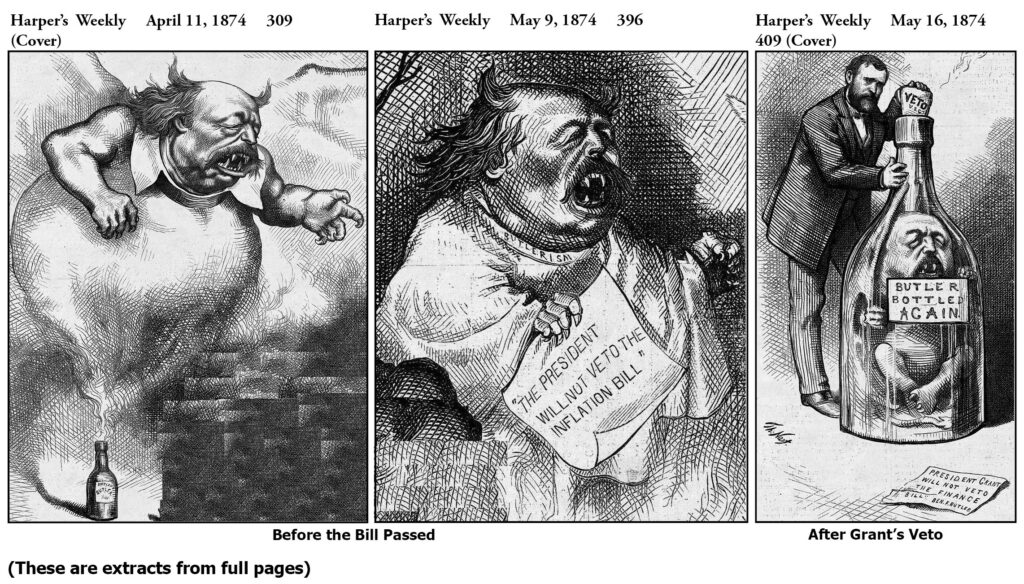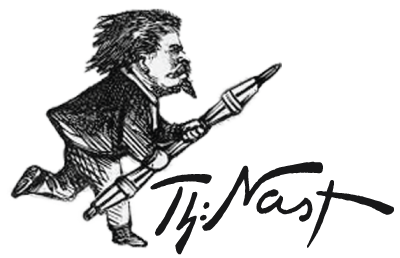
Harper’s Weekly – April 11, 1874, May 8, 1874, May 16 1874 (extracts)
President Ulysses Grant was in the middle on inflation. Remembering his first-hand experience as a farmer and a tanner, he could empathize with failing Western growers and manufacturers. With the President’s approval, Treasury Secretary William Richardson had increased the money supply by reissuing $26 million of the previously redeemed $44 million in greenbacks. However, several of his strongest Senate supporters — among them Oliver Morton (IN), John Logan (IL), Matthew Carpenter (WI) and Simon Cameron (PA) — pushed an Inflation Bill which Congress passed with, large majorities on April 14, 1874, and sent to the President for his widely expected signature.
Grant contemplated for a week and then vetoed the bill, astonishing Congress and the opposition press. His veto message emphasized two critical points: any short-term benefit would be far outweighed by long-term damage to the national economy; and the Republican platform and his campaign promises called for early resumption of specie payments. It was one of the most important and politically courageous decisions of his Presidency — praised by many of his liberal opponents and criticized by some of his conservative supporters.
Nast finally had an important issue that he could jump into without equivocation — skewering even Republicans who were on the wrong side. In particular, he went after Ben Butler, still a Massachusetts Congressman, and one of his favorite all-time targets (with 64 appearances in the Weekly). His cock-eye, unethical if never-quite-proved dealings, autocratic and sometimes chameleon-like behavior, and frequent failures, made him a caricaturist’s dream come true. He led the charge in the House for the Inflation Bill.
As the Civil War wound down in 1865, General Butler had failed to execute General Grant’s orders to attack Fort Fisher and close the Wilmington, North Carolina port, and subsequently was effectively fired from the Army. He became “Bottled-up” Butler in the popular press. Nast had a good time with that as Butler failed again.
